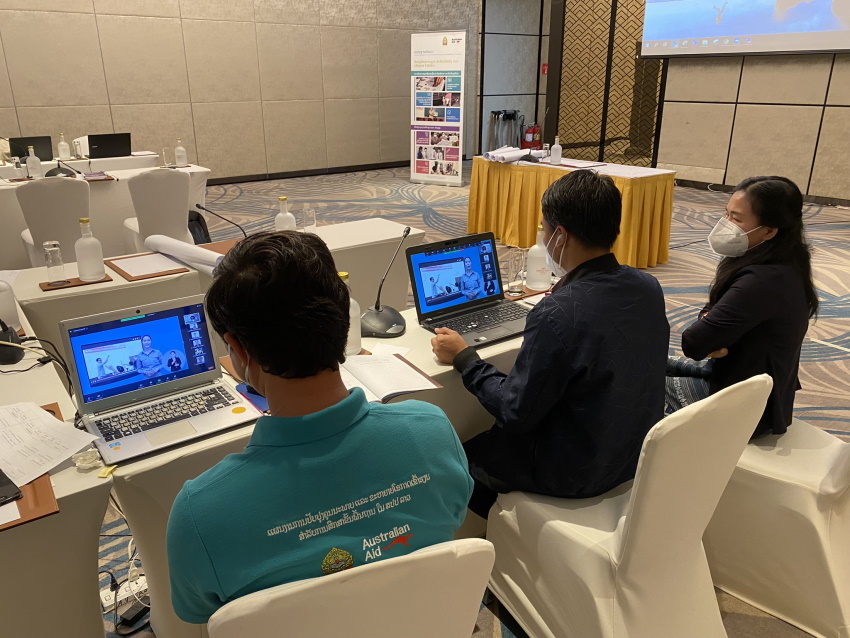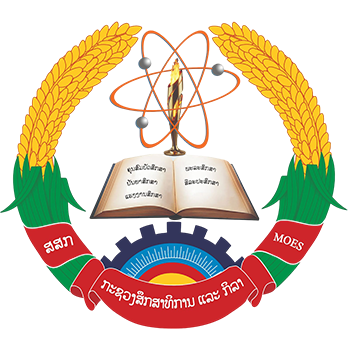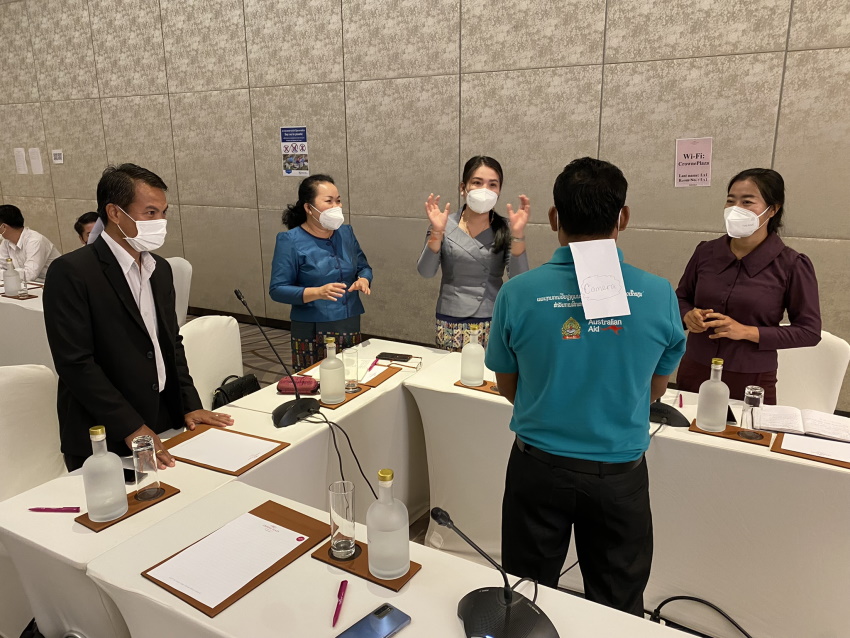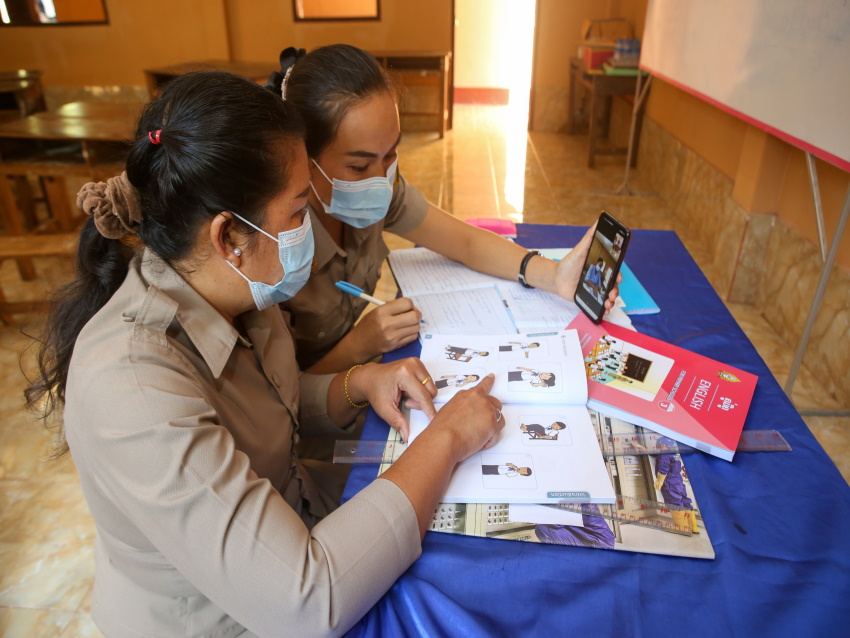The aim of this initiative is to develop trainers’ skills and confidence in using Zoom to participate in and deliver online workshops and provide continuous support using blended online and face-to-face methods
Since the beginning of the COVID-19 pandemic, the Ministry of Education and Sports, with the support of the Australian Government via their BEQUAL program, has been actively responding to COVID-19 protection mechanisms by testing various innovative approaches to ensure training, teaching, learning and monitoring activities can continue, even during a lockdown. These new approaches, often involving ICT, led to more benefits such as cost and time efficiency, flexibility and also supporting teachers and trainers in remote parts of the country more easily.
One of these new initiatives is the Blended Learning Pilot led by the Department of Teacher Education and piloted in October 2020 in three provinces (Luang Namtha, Savannakhet and Vientiane Capital). Blended learning is an educational approach which combines traditional face-to-face learning with online materials and opportunities for interaction online. It requires the physical presence of both trainer and learner at some times, and during other times, the learner can decide when to learn and which approaches and tools to use for learning which includes using online tools. The idea is to establish and make available alternative approaches and tools to continue training and support of trainers and teachers in present and future crises such as a lockdown, as well as establishing effective and flexible modes for delivery of training and support. During the blended learning pilot, Master and Provincial trainers in the three pilot provinces learned how to participate in and deliver online and mixed workshops.

Mr Keth Phanhlack, Director General, Department of Teacher Education (DTE) said: “The feedback from the pilot is positive. The blended learning approach offered the learner convenience and flexibility; they can control their learning pace and learn remotely. It is also very relevant for remote areas, reducing traveling time and costs to training locations that may be difficult to reach. It allowed the Master Trainers to respond timely to difficulties encountered by Provincial Trainers and to provide continuous guidance via remote support sessions. But there are still many challenges with having access to online tools such as computers and internet as well as developing the technical skills to use online tools. It is very positive that BEQUAL is supporting our Master and Provincial Trainers to develop their technical skills for using online learning and teaching tools”
Following those positive results, Australia and MoES have decided to scale-up the blended learning to all Master and Provincial trainers nationwide.
The scale-up will follow the same cascade model that is used for the national teacher training for each new primary grade: The Department of Teacher Education and BEQUAL experts train the Master Trainers who then train the Provincial Trainers nationwide.
During a three-day training from 1st to 3rd March, the 63 Mater Trainers learnt how to confidently participate in and deliver online workshops using Zoom (a video conferencing software). They learnt about the many functionalities of the video conference platform such as group chat, breakout room discussions, sharing screens and using a troubleshooting guide to independently overcome technical issues. During March and April, the Master Trainers will cascade the training to all 632 Provincial trainers across 18 provinces.
In addition to this national training, 24 Master Trainers from BEQUAL’s six target provinces; Phongsaly, Luang Namtha, Khammouane, Savannakhet, Salavan and Sekong as well as teacher support module writers will participate in two half-day online workshops in April and May on the Teacher Support Pack modules (another pilot activity currently underway and receiving support from the Australian Government). Master Trainers will then deliver these two online workshops on Zoom to 228 Provincial Trainers in the six target provinces. These workshops will provide these Master and Provincial Trainers with an opportunity to practice their new ICT skills to participate in and deliver workshops online.



 ພາສາລາວ
ພາສາລາວ

